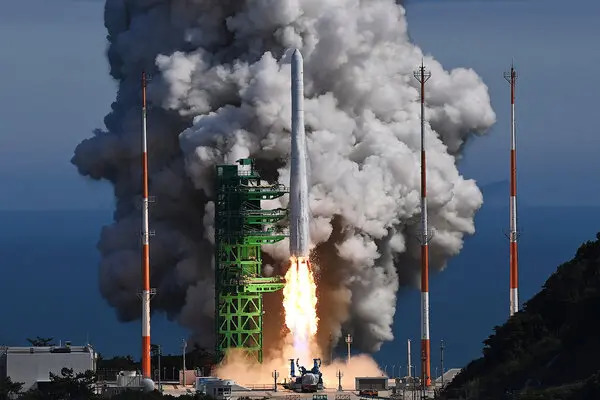South Korea launched its first satellite successfully using a homegrown rocket, boosting the nation’s expanding aerospace ambitions and proving it has the necessary technologies to build larger missiles and launch spy satellites in the midst of tensions with rival North Korea. The Science Ministry reported that the three-stage Nuri rocket successfully launched a working “performance verification” satellite to a target altitude of 435 miles from South Korea’s space launch facility on a southern island.
Buy Prime Test Series for all Banking, SSC, Insurance & other exams
Key Points:
- An unmanned South Korean station in Antarctica received signals from the satellite informing it of its condition. It is carrying four smaller satellites that will be launched for Earth observation and other missions in the following days.
- At a live-streamed press conference at the launch facility, science minister Lee Jong-Ho declared that “the science and technology of the Republic of Korea have achieved a remarkable advance.” Together with the people, the government will continue its bold march toward becoming a space power.
- President Yoon Suk Yeol congratulated scientists and other launch participants in a video conference and promised to uphold his campaign pledge to create a state aerospace agency, according to his office.
- The 154-foot rocket was seen ascending in live TV footage among brilliant flames and copious amounts of white smoke.
- With the launch, South Korea became the tenth country in the world to successfully launch a satellite using homegrown technology.
- It was the second Nuri rocket launch by South Korea. When the first attempt was made in October of last year, the third stage rocket’s engine prematurely burned out, preventing the fake payload from entering orbit after reaching the appropriate height.
About South Korea:
- A significant manufacturer of cellphones, cars, and semiconductors is South Korea, which has the tenth-largest economy in the world.
- But compared to its Asian neighbours China, India, and Japan, it has a less advanced space development programme.
- In 2012 and 2016, North Korea launched Earth observation satellites, however there is no evidence that either one has ever relayed pictures or data from space to Earth.
- Economic sanctions were imposed by the U.N. as a result of the North Korean launches, which were thought to be a cover for the country’s prohibited long-range missile testing.
- South Korea has sent several satellites into orbit since the early 1990s, although every launch location or kind of rocket utilised was foreign.
- South Korea successfully launched a satellite from its own country for the first time in 2013; nevertheless, the rocket’s first stage was constructed in Russia.
Important Takeaways for All Competitive Exams:
- South Korea President: Yoon Suk Yeol
- South Korea National Flower: Mugunghwa (Rose of Sharon)




 Weekly Current Affairs One Liners 16th t...
Weekly Current Affairs One Liners 16th t...
 Which District is known as the Medical C...
Which District is known as the Medical C...
 Which was the First Women's University i...
Which was the First Women's University i...








